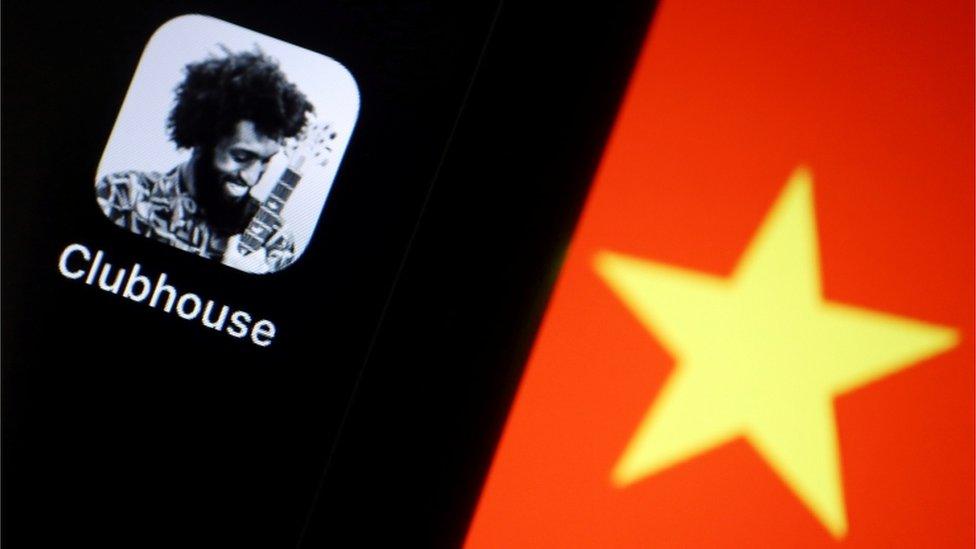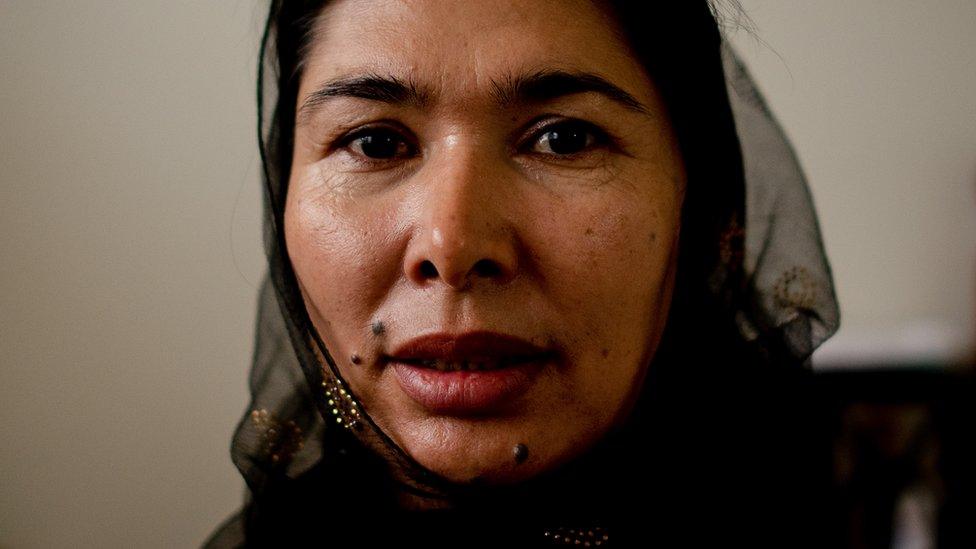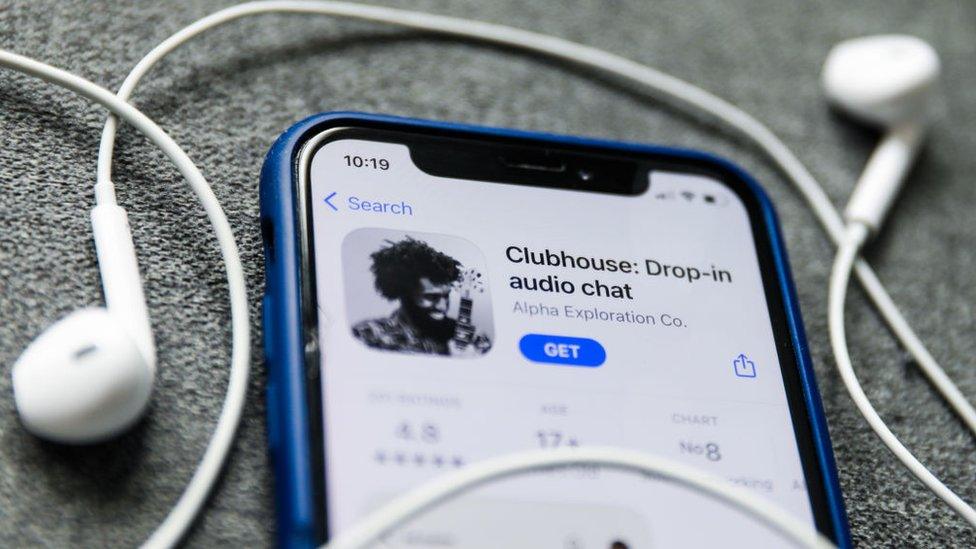Clubhouse discussion app knocked offline in China
- Published

Discussion app Clubhouse appears to have been knocked offline in China, prompting fears it has been blocked by the state's so-called "Great Firewall".
The invite-only app uses audio rather than text to let people chat in rooms.
Until recently, it had mainly been used by tech enthusiasts in Silicon Valley - but exploded in popularity in China in recent weeks.
Unlike many Chinese apps, it is uncensored - leading to discussions around topics rarely debated online.
Chinese authorities retain significant control over what is published on the internet, censoring search results and limiting visibility of posts on many topics.
While Clubhouse does record audio of users' chats, it says it only does so "temporarily", external, explaining it typically deletes the sound files after a room session has ended unless a complaint had been raised, in which case it keeps them longer to review what had been said.
This should provide users some measure of privacy - something which was exploited last weekend before the apparent block kicked in.
While Clubhouse was active, it hosted the kind of conversations rarely seen online in China.
BBC reporters observing the discussions found one room with thousands of participants, from both China and Taiwan, politely discussing many sensitive topics. Beijing considers Taiwan a breakaway province, but Taiwan sees itself as a sovereign state.
The topics discussed on the app included the pros and cons of democracy; controversial policies in Hong Kong, and towards the Uighur ethnic group in western China; as well as the unification of Taiwan and China.
But participants from both sides also shared stories about visiting each others' homelands for the first time.
Its soaring popularity - and the fact that it is invite-only - led to invites being sold for up to $77 (£56) each, the Financial Times reported.
But many China-watchers listening in over the weekend questioned how long such open and uncensored conversations would be allowed to continue.
On Monday, thousands of social media users simultaneously reported the app had been knocked offline.
No official statement about the app - or its potential future in China - has yet been made.

Analysis: A delayed reaction
By Kerry Allen, China media analyst
Clubhouse will have created a headache for the Chinese censors, who aren't especially active during the annual Spring Festival holiday period.
Overseas apps are often unavailable to view the moment they start to gain momentum in China, but many China-based users were able to have conversations with people overseas for days before suddenly finding themselves unable to access their accounts.
Its momentum was perhaps unexpected: in recent years, domestic phone-makers like Huawei have surged in popularity, and Clubhouse is only available on iPhones.
It is not yet clear if Clubhouse has been blocked in China, but more than 100,000 Weibo users on Monday saw posts containing the hashtag #ClubhouseBlocked, before Sina Weibo suddenly started showing "no results" - clear evidence of censorship.
Users all over China shared pictures of their frozen accounts, external before government censors moved to blanket-block them.
The nationalist Global Times newspaper disputes the suggestion that the app became a "free speech heaven", external for China-based users, and instead says users "expressed worries of the platform being used for anti-China propaganda".
However, it adds that "the platform is still in the early stages of development", hinting it may make a return, provided it maintains "a friendly community atmosphere".

Clubhouse launched in April last year, but its invite-only model meant if initially grew slowly, with every user starting out with just one invite for another.
The fact that it is currently available only on iPhones, and not on the web or on Android phones, has also limited its spread.
But that exclusivity was also part of its appeal, quickly attracting technology employees, investors, and journalists in Silicon Valley. Later, some major US celebrities joined, furthering the image of an exclusive "clubhouse" that many were eager to join.
The app appears to have reached a critical mass in recent weeks, prompting widespread interest among ordinary users and in the mainstream media, particularly after the appearance of major tech bosses Elon Musk and Mark Zukerberg on the platform.
While Clubhouse has not explicitly said how many active users it has, mobile analysts Sensor Tower estimates the app has been downloaded at least two million times. But some people may be downloading the app without the necessary invite to actually use it.
All that growth means that its investor valuation has surged from some $100m last May, reportedly hitting the $1bn mark in recent days., external
Correction 15 February 2021: An earlier version of this article reported that audio of user chats in the Clubhouse app is not recorded and this line has been amended to clarify the circumstances in which the app does record audio.
Related topics
- Published2 February 2021

- Published1 February 2021

- Published8 February 2021
